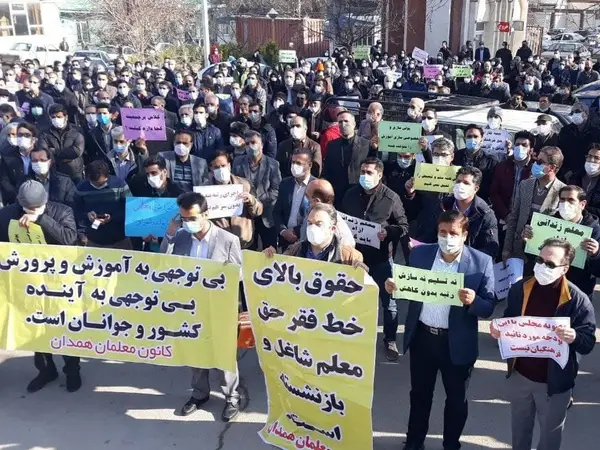Rejecting a bill passed Wednesday offering some pay increases, teachers in Iran vow to continue protests if by Sunday parliament does not amend its legislation.
Teachers have been holding protests and demanding the implementation of a previous legislation, which would bring salaries and pensions in line with of other civil servants, and would benefit around 750,000 educators.
Parliament voted to appropriate a little over one trillion rials a month to finance new pay scales for teachers, but Mohammad Habibi, spokesperson of the teacher’s union said after the vote that “What was approved today in parliament was an improvisation,” not the enactment of a real pay scale.
The money approved by parliament would be added to salaries immediately, but calculated in US dollars, on average each teacher will receive just $11 dollars a month in extra pay, which would not help much in dealing with the current annual inflation rate of 45 percent. The poverty line in Iran is now around $400 a month income for a family of 3.3 people, and most teachers are getting much less than that. Even with the extra pay, around 80 percent would earn less than the minimum salary needed.
Food prices have risen by more than 60 percent this year, on top of high inflation in the previous three years. Government figures released in recent days showed that prices for 83 percent of basic food staples have reached a critical level. People living on salaries have cut back on consumption of nutritious food, such as meat, fruits and dairy products.
What seems to have prompted parliament to act quickly was a nationwide protest of tens of thousands of teachers on Monday [Dec. 13]. With rising pieces and growing poverty, the government is sensitive to new protests, concerned that any economic grievance can trigger general nationwide unrest, similar to bloody protests in November 2019, when security forces killed hundreds of unarmed people.
Tehran is also engaged in nuclear talks with world powers in Vienna and any large protests might weaken its position in the negotiations, that from Iran’s perspective is aimed at removing US economic sanctions that have battered its economy since 2018, when former president Donald Trump withdrew from the Obama-era nuclear agreement known as JCPOA.
On Thursday, hundreds of teachers demonstrated in the western city of Hamedan, rejecting parliament’s decision. They also demand the release of union activists arrested over the years and charged with a variety of security offenses. They are practically political prisoners, like many journalists and civil society activists, who do not receive a fair trial and are accused of trying to overthrow the regime.
